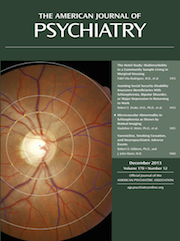Where All and Nothing Is About Mental Health: Beyond Posttraumatic Stress Disorder for Displaced Syrians
We lived in a small but crowded region that was considered to be a buffer zone between the antagonists. For a few months, my family and I struggled successfully against joblessness, diseases, and the lack of basic and necessary materials such as bread and water. One day, right after the decision was made to invade our region, I left the eight members of my family at home and went out to have a walk with a friend in a nearby neighborhood. A few minutes later, I heard two consecutive tremendous explosions. I went with my friend to check whether we could offer any help to the wounded. When we arrived at our street, I saw my friend picking up a human hand from the ground. From the minute I recognized the ring of my mother on one of the fingers of that hand, nothing in this life has been the same. I will spare you, Doctor, the details of how I packed the body parts of my family members who were all killed by the bombing that day, and would like to ask you to give me something that could help me sleep at night.My 35-year-old brother, the father of three children, had nothing to do with all the conflict that has been going on during the last few years. They kidnapped him for no reason while he was coming back home after an ordinary workday. A couple of weeks after his kidnapping, I received, in a message sent to my cell phone, a picture of his chopped-off head…. Please, Doctor, all that I ask for is to get the picture of his chopped-off head out of my mind….I was kidnapped and tortured only because I wanted to cross to an opposite region to help my sister get home safely. During those 3 weeks of capture, I had five near-death experiences that I don’t think I will be able to forget in my lifetime. Although my kidnappers realized in the first few days that they would not obtain any important information from me, they kept me in their custody, most probably because they wanted to feed their hatred for the sons of my region and religion. They used me as a punching bag, they played Russian roulette over my head, and they made a few fake executions just to mess with my mind. All these experiences were still not anywhere near the most staggering trauma I had. I had been kept in a basement where all the executions took place. In that room, human blood covered all the walls and formed stagnant pools on the ground. On one of those days in which I was wasting away from hunger and thirst, I remember that I woke up from a disturbed sleep to find my face in one of those pools. I unconsciously started drinking from that blood in order to sooth my thirst. From the moment I got freed until now, I haven’t been able to get rid of the feeling of guilt and shame of what I did in that basement.
Information & Authors
Information
Published In
History
Authors
Metrics & Citations
Metrics
Citations
Export Citations
If you have the appropriate software installed, you can download article citation data to the citation manager of your choice. Simply select your manager software from the list below and click Download.
For more information or tips please see 'Downloading to a citation manager' in the Help menu.
View Options
View options
PDF/EPUB
View PDF/EPUBLogin options
Already a subscriber? Access your subscription through your login credentials or your institution for full access to this article.
Personal login Institutional Login Open Athens loginNot a subscriber?
PsychiatryOnline subscription options offer access to the DSM-5-TR® library, books, journals, CME, and patient resources. This all-in-one virtual library provides psychiatrists and mental health professionals with key resources for diagnosis, treatment, research, and professional development.
Need more help? PsychiatryOnline Customer Service may be reached by emailing [email protected] or by calling 800-368-5777 (in the U.S.) or 703-907-7322 (outside the U.S.).

